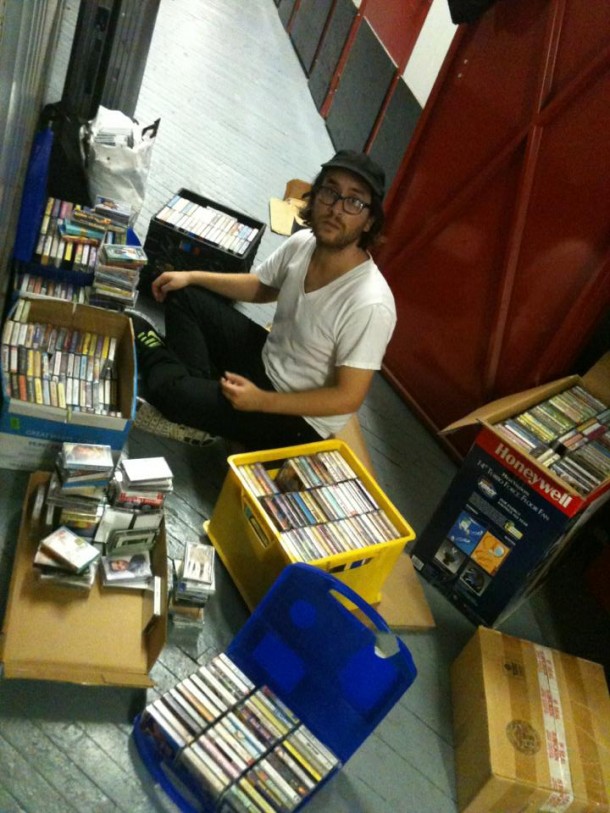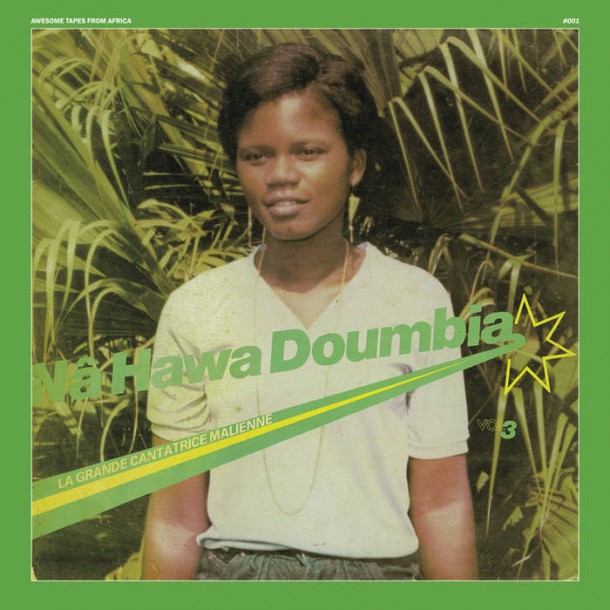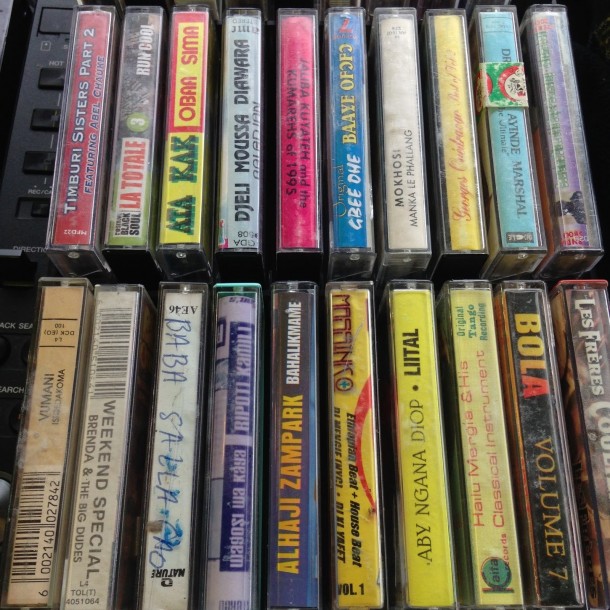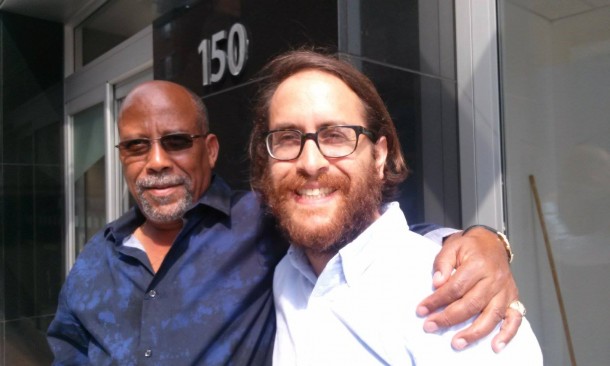



Brian Shimkovitz, the soul behind the Awesome Tapes from Africa record label, is a true pioneer when it comes to African music: he was the first new generation digger to target lost tapes as his main excavation goal when hitting the motherland. His curiosity led to classic vinyl reissues such as Hailu Mergia, Ata Kak or Penny Penny. Read the full story here.
When did you start digging records?
I have been collecting LPS since I was maybe 12 years old. I was obsessed with garage sales as a kid growing up in suburban Chicago. But my main collection is cassettes from various parts of Africa. I first visited West Africa in 2002.
What cassettes did you buy at first ? Do you still listen to them?
I was interested in Ghanaian hiplife, the rap style they have been doing there since around 1994. I still listen to some of the very first tapes I found, including music by Reggie Rockstone and VIP.
What Lps did you buy at first? Do you still listen to them?
When I started looking for records I was in a heavy Jimi Hendrix and Led Zeppelin phase, a rite of passage for suburban white American males. I haven’t played these records in a while but that’s only because I am distracted by hundreds of disco 12”s.
Do you have a particular style or favourite period?
I think my digging for LPS these days focuses on late 70s jazz, early disco, and contemporary classical music, especially works that use computers or synths. I also like dollar-bin new age records and ethnographic field recordings from Africa, Southeast Asia and the Pacific Islands/Australia.
Are you still digging, buying vinyl, cassettes, visiting record shops?
I travel a lot and don’t have money or space in my bags for vinyl but when I visit African countries, which is about once a year, I always bring back and ship home by mail as many tapes as humanly possible. But I never buy out entire stores or purchase like thousands from distributors. I hand select what I get even if it is in the hundreds.
When did you decide to focus mainly on cassettes reissues? What was your first release on Awesome Tapes From Africa?
I started ATFA the blog in 2006 as a way to spread information about music that isn’t easy to find or well-distributed outside of Africa. After a few years Secretly Distribution approached me and asked if I would like to do a label with the help of their business expertise and network. The first release was actually an LP by Malian singer Nahawa Doumbia. But the focus on tapes was because when I became interested in African music and started doing research in Ghana, tapes were the main thing you could find. I had always listened to tapes anyway, having grown up a serious Deadhead.

Why did you choose this name : Awesome Tapes From Africa? A kind of other sounds library?
I try to avoid using the term “other” or anything like that. Awesome Tapes From Africa the name came to me suddenly while talking about the hundreds of tapes in boxes under my bed in Brooklyn with my roommate one. I thought it sounded good. I realize it is kind of a cheesy name but it works for me. I feel more creative and I can focus better when I have some limitations. If the project were to include MP3’s or Guatemalan music it would be too overwhelming for me. Plus I am truly in love with the music from many parts of Africa and I have never even remotely gotten bored of any of it.
Because they show another part of african music, from another point of view, could we give a kind of ethnologist stamp on your records?
I studied ethnomusicology, african studies and anthropology at university and spent a year doing fieldwork about rap in Ghana. But ATFA was very much a reaction to what I feel is a self-serving approach in much research – the work spent in the field typically does very little for the people who gave their time to the research. So the project is meant to be for everyone and it is purposely not jargon-heavy or exclusive in terms of background knowledge. I am not interested in measuring how much people know or flexing my knowledge. It is all about NOT being an expert and just opening oneself up to music and people. The liner notes and marketing materials are more focused on telling the artists’ stories as humans who make music in a specific context, to help them reach fans and make a living beyond their borders. As opposed to looking at their music as an example of a larger movement and framing it in a more sociological or ethnographic sense.
Do you feel sometimes not so far from a firm like Folkways because you put on regular market some recording sessions done only for a their countries?
Comparing oneself to Folkways is impossible since that is such a monumental outfit that also is a product of a certain time in history. Before the Internet the ability to travel and explore musics in other countries was not available to many people. Folkways collection is the result of decades of work by dozens of researchers, communities and collectors. And it is unabashedly uncommercial – they lose lots of money and are quasi-governmental these days. Some of the texts feel dated now but still contain vital info that we can no longer collect. ATFA is a bit more focused on popular musics and things that everyone in urban parts of Africa can have access to, rather than disappearing folk forms and the like. I am very interested in the cassette and popular music as a mass produced artifact you can buy on the street or download on your smartphone.

Ata Kak
Daa Nyinaa
How do you find tapes? Is it something harder or easier than digging Lps?
Finding tapes is more aimless than digging for LPs sometimes because I often have limited options. Most shops across Africa have stopped selling tapes so whatever music I find I sift through, rather than searching for specific artists. I am most interest in the stuff I haven’t heard of or didn’t know exists.
How do you decide on the choice of reissues?
Reissues on ATFA are always complete albums. I am not into compilations because I am trying to expand artists’ careers. Therefore the recording must be all good, not just one or two songs. I want to release a variety of stuff, from a variety of regions and sensibilities. ATFA is meant to surprise people with music they didn’t know about and/or artists that are legends in their homeland but less well-known outside. I am into music that is super modern and also music that is relatively old or features traditional instruments. I am keenly aware of trends among labels reissuing African music and I avoid doing whatever they are doing.
One of our favorite (and one of the Superfly shop best seller) is Hailu Mergia. What an incredible story! How did you get in touch with him?
Funny thing about Hailu Mergia and I is that we met very easily. Searching for him was the easiest of all the artists I’ve worked with because when I Google’d him I found his phone number, called him and we decide to work together. It has been one of the most rewarding and positive experiences in my whole life. I found his tape a a shop in Northern Ethiopia and came back to my home at the time in Berlin and got very intensely into this recording of his “Hailu Mergia and His Classic Instrument”, where he plays the accordion and keyboards in a very compelling and beautiful way.

Hailu and Brian… and Hailu on “Shilela”
And what about the new one, “Wede Harer Guzo” from 1978?
Hailu and I have a wonderful working relationship and we are now great friends and trust each other completely. Putting together this release was relatively straightforward since he knows what to expect already.
On your website, you insist about the fact you share all benefits 50/50 with the artists. Could you tell us more about this topic?
I spend a significant amount of time and money on reissuing these records and if they make money the artists get 50% of it, which they receive every 6 months. There are people who say this isn’t enough but they typically don’t know much about the music industry or music distribution in African countries, let alone the “western” world.
During the eighties and nineties, a lot of african music productions were only available on cassettes, especially for the local market. Do you believe those productions were pretty different than african CDs for the European market? And what differences did you notice? Sound? Repertory?
The main thing I am into with ATFA is countering the idea that African music is “world music”, in the sense that it is made for hippies and pseudo-intellectuals in the West. The purpose of the project is show what music is popular in these various countries and regions. The production approaches differ when the recordings are made locally as opposed to studios in Europe or North America. That said, I am not against reissuing recordings made outside Africa. Many recordings made in Africa don’t get concerned with song length or elaborate album art. They often just contain the music and the track list and maybe the personnel. Definitely only certain types of African pop that was deemed marketable was produced in Western studios for “world music” labels. I am more into music made for people who live in these places and presenting it without changing the track sequence, album art of production/sound beyond restoring it, if necessary.
Another huge cassette market is Pakistan/India… Could you imagine creating a kind of subdivision dedicated to this geographical area, highly populated in terms of sounds, in all styles ?
Nope, never!
Dur Dur Band
Tajir Waa Ilaah
Have you received many negative answers on some of the artists, unreleased tapes, you were trying to reissue?
Most of the artists I manage to track down and contact end up doing a project with ATFA. There have been a few who for some reason don’t work out. I don’t really know why, to be honest. Sometimes after a few years of calling every couple months I give up and move on. I get strung along sometimes and never get sent masters or recordings I am hoping to release, even after sending a draft contract so they can see what the deal is. 9 times out of 10 the project happens though.
There are more and more reissues of old LPs, and more and more record labels (major or indie) now release their new artists on LP, or EP. Do you think that the LP reissue market could ever reach saturation point?
Yes, because many labels keep putting out the same types of stuff which is causing fatigue among some music fans. There are tons of people out there who think African music pretty much means West African guys with wah-wah guitar and funky beats. I am constantly trying to cut through idea and make available music that is distinctive and not defined by a Western analog.
What are your next releases?
I don’t have any releases until January because I have been busy working on visas for artists on the label to tour Europe and elsewhere. It’s a bit too soon to discuss the January release, I’m afraid but I will definitely keep you posted.
Ok, but what is the awesome tape you dream of reissuing?
That’s a fun question. I dream of reissuing more tapes from Somalia in general, but I can’t name a specific one because I don’t know much about them, I have so much more to learn!